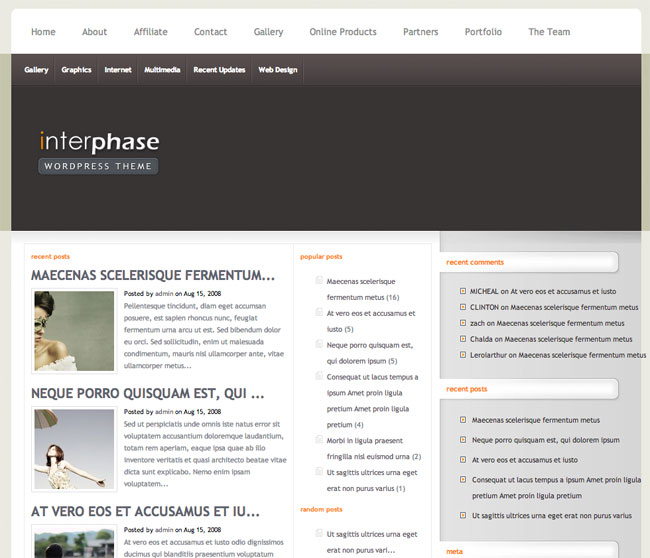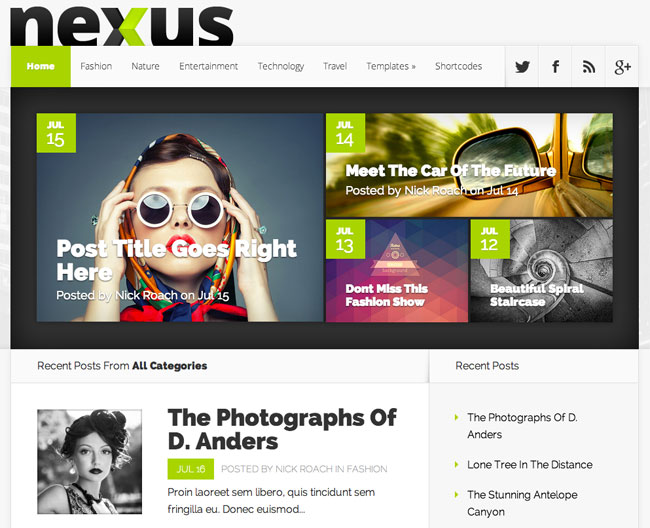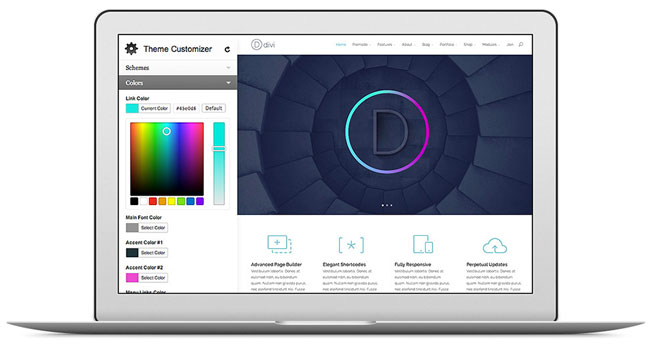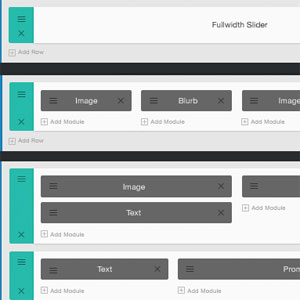I have been actively reviewing WordPress plugins and themes since I launched my old blog BloggingTips.com in 2007. When you have used WordPress for so long, you develop a strong opinion on what WordPress should and should not do.
This is not always a good thing. I can dismiss a WordPress theme as unsuitable in seconds just by looking at the design. As Orson Welles once said “I don’t know anything about art but I know what I like”. I am not unique in this regard. We all have different opinions on what represents a good WordPress design.
I am reminded of this fact whenever I help friends choose a WordPress theme; particularly those who have never created a website before. I point them towards a modern WordPress template that is packed full of features, yet they look towards a simple WordPress design that I feel is dated. It is clear that those of us who develop websites forget that non-technical people see the internet in a different way.
A few days ago I was chatting with Nick from Elegant Themes. From a design point of view, Elegant Themes is a great example of how WordPress have evolved over the last six or seven years. 87 professional WordPress themes are included in an Elegant Themes membership. Their low membership fee of $39 per year means that each theme costs less than 50 cents each. Designs range from simple blogging themes to modern eCommerce, Multimedia and application themes.

Some of their older designs are now looking a little dated. Whilst I do recognise the need for basic WordPress designs, I appreciate the fact that Elegant Themes are trying to raise the bar with each new theme they release. You only have have to look at the difference between their initial designs and their latest designs to see how far they have come.
Take the magazine theme InterPhase, for example. It is still a functional theme, however it looks dated compared to a newer design such as Nexus.

In the future, I believe we will all use WordPress templates that offer more flexibility. Their Divi theme is the perfect example of this. It comes with 18 pre-designed layouts and a featured packed module system. The key selling point is the theme’s module system, which lets non-technical users build complex layouts using a visual drag and drop page builder.

The concept behind Divi is simple: Give control back to the user. Let them decide how they build their website. After all, we all have different needs for WordPress.
The reality is that feature rich themes are not perfect and neither are basic themes.
It is not always about whether a design has a simple look or not. It is sometimes the issue of whether a design has too many functions or too few. The more functions you add to a theme, the more difficult it is to modify that theme. Whereas modifying WordPress functions is easy, modifying custom functions is not.
So builder designs such as Divi are better for beginners, however it can be a pain for anyone who wants to change the theme in a way that it was not originally intended. This criticism can be directed at any WordPress theme that has many custom options and functions (pretty much most of the best-selling designs at ThemeForest).
Perhaps themes such as Divi are the future as they give you more control over how your information is laid out. Perhaps not. It could be argued that all WordPress themes should be a blank canvas and that functionality should be added through plugins.
It is clear that every WordPress theme has limitations. How limiting a theme is depends on who is using the theme and what they are using it for. In that respect, pros can be cons in the eyes of some, and vice-versa.
For the first few years I used WordPress, I would always modify themes myself. I would change functions directly via the template system and move things around frequently. My habits have changed over the last couple of years. Nowadays, I am looking for designs that I can just use out of the box and focus on publishing content.
What Say You?
WordPress is the most flexible content management system available, which is why there are so many ways in which it can be used.
To get to know you all better, I would love to know how you all use WordPress:
- Are you using WordPress to develop websites for clients or for yourself?
- Do you use WordPress to build blogs, business websites, eCommerce websites, portfolios or magazines?
- Do you prefer minimalist themes or themes with lots of functionality?
- Do you modify the themes you use or do you use themes as they are?
Please leave your comments below :)
Thanks,
Kevin

